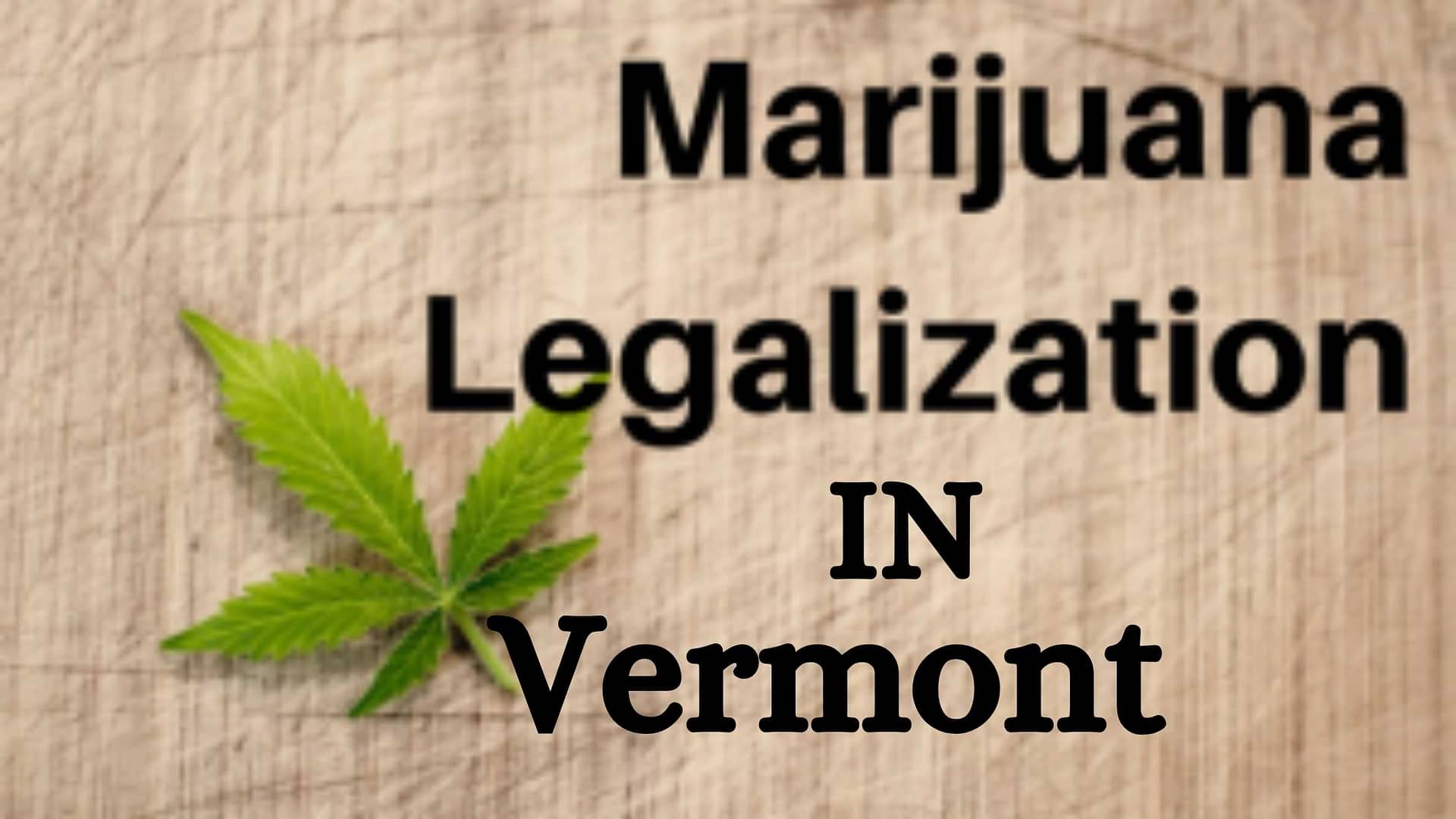In Vermont, it's now okay for grown-ups over 21 to have a little bit of marijuana. You can even plant some in your garden, but not too much. It wasn't always like this. In the past, having marijuana was against the rules. But things changed, and we want to tell you all about it. So, welcome to a story about Vermont marijuana laws. We'll talk about how it happened, what you can do, and what might come next. It's all here for you to understand, whether you're from Vermont or just curious about the Green Mountain State's rules. Let's get started!
Table of Contents
- 1 The Evolution of Marijuana Laws in Vermont
- 2 The Road to Legalization
- 3 Current Legal Status
- 4 Possession and Cultivation Limits
- 5 Medical Marijuana Regulations
- 6 Patient Rights and Access
- 7 Impaired Driving Laws
- 8 Consequences and Testing
- 9 Local Governance and Regulations
- 10 Variations in Rules
- 11 Pros and Cons of Vermont Marijuana Laws
- 12 Pros
- 13 Cons
- 14 Cannabis Industry in Vermont
- 15 Licensing and Taxation
- 16 Conclusion
- 17 Frequently Asked Questions (FAQs)
The Evolution of Marijuana Laws in Vermont

Vermont marijuana law has come a long way. Historically, the state adhered to strict prohibition, mirroring federal policies. However, the tide began to turn in the early 2000s when Vermont decriminalized possession of small amounts of marijuana.
The Road to Legalization
In 2018, Vermont made history by becoming the first state to legalize recreational marijuana through legislative means, rather than a voter initiative. This watershed moment marked a significant shift in Vermont's approach to cannabis.
Current Legal Status
In Vermont, marijuana laws have evolved to allow responsible adult use. As of 2023, here's a summary of the current legal status of CBD in Vermont :
| Aspect | Details |
| Recreational Use | Legal for adults aged 21 and older. |
| Possession Limit | Adults can possess up to one ounce (28 grams). |
| Cultivation | Allowed for personal use – up to two mature plants and four immature plants per household. |
| Medical Marijuana Program | Exists for patients with qualifying conditions. |
| Decriminalization | Minor possession offenses result in civil penalties, not criminal charges. |
| Impaired Driving | Illegal to drive under the influence of marijuana. Penalties include fines, license suspension, and possible imprisonment. |
| Local Regulations | Local governments have authority to set their own rules for marijuana businesses, leading to variations in regulations. |
Possession and Cultivation Limits
Adults can possess up to one ounce of marijuana. Home cultivation of marijuana is also allowed, with a limit of two mature plants and four immature plants per household. These limits are designed to ensure responsible consumption and prevent the black market.
Medical Marijuana Regulations
Vermont's medical marijuana program provides relief to patients with qualifying conditions. Those suffering from chronic pain, cancer, and other debilitating conditions can access cannabis with a doctor's recommendation. Suffering from those CBD oil for pain can give positive result.
Patient Rights and Access
Medical marijuana patients have certain rights and protections under Vermont law. They can purchase medical cannabis from licensed dispensaries and are exempt from some of the restrictions imposed on recreational users.
Impaired Driving Laws
Driving under the influence of marijuana is taken seriously in Vermont. It is illegal to operate a vehicle while impaired by any substance, including marijuana. Law enforcement uses standardized field sobriety tests and drug recognition experts to assess impairment.
Consequences and Testing
Penalties for impaired driving can include fines, license suspension, and even imprisonment. Police officers may use breathalyzer tests and blood tests to determine THC levels in drivers.
Local Governance and Regulations
One unique aspect of Vermont marijuana law is the role of local governments in regulating cannabis businesses. Each county and municipality has the authority to set its own rules and regulations for dispensaries and cultivation facilities.
Variations in Rules
These variations can lead to significant differences in the availability and accessibility of marijuana-related services depending on where you are in the state.
Pros and Cons of Vermont Marijuana Laws
As with any complex issue, there are pros and cons to Vermont's approach to marijuana regulation. Let's examine some of the key points.
Pros
- Economic Boost: The cannabis industry has provided a new source of revenue and job opportunities for Vermonters.
- Reduced Criminalization: Decriminalization and legalization have reduced the number of individuals burdened with criminal records for minor possession offenses.
- Patient Access: The medical marijuana program ensures that patients have access to the medicine they need.
- Personal Freedom: Adults can make choices about their own cannabis consumption without fear of legal repercussions.
Cons
- Public Health Concerns: Critics argue that the widespread availability of marijuana could lead to increased public health issues, particularly among youth.
- Complex Regulatory Environment: The patchwork of local regulations can be confusing for consumers and businesses.
- Impaired Driving Risks: There are concerns about the potential increase in impaired driving incidents.
Cannabis Industry in Vermont

The emergence of a legal cannabis industry in Vermont has been both exciting and challenging. The state has put regulations in place to govern the production, distribution, and sale of cannabis products.
Licensing and Taxation
To operate in the cannabis industry, businesses must obtain licenses from the state. These licenses come with specific requirements and tax obligations, contributing to the state's revenue.
Conclusion
In Vermont, the rules about marijuana have changed a lot. Now, if you're 21 or older, you can have a small amount of marijuana and even grow a few plants at home. It wasn't always like this. Vermont used to say “no” to marijuana, but now it says “yes” with some rules to keep everyone safe. The future might bring more changes, like helping sick people and being fair to everyone. So, remember, if you're in Vermont or just curious, understanding the rules about marijuana is important. Stay informed and enjoy the green future of Vermont, but always be responsible!
Frequently Asked Questions (FAQs)
Is marijuana legal in Vermont for recreational use?
Yes, marijuana is legal for recreational use in Vermont for adults aged 21 and older. They can possess and cultivate a limited amount of marijuana for personal use.
What are the possession limits for recreational users in Vermont?
Adults in Vermont can legally possess up to one ounce (28 grams) of marijuana for personal use.
Can I grow my own marijuana plants in Vermont?
Yes, adults in Vermont are allowed to cultivate a limited number of marijuana plants for personal use. The law permits two mature plants and four immature plants per household.
Are there any restrictions on driving under the influence of marijuana in Vermont?
Yes, it is illegal to operate a vehicle while impaired by marijuana or any other substance in Vermont. Penalties for impaired driving can include fines, license suspension, and even imprisonment.
Can I use marijuana for medical purposes in Vermont?
Yes, Vermont has a medical marijuana program that allows patients with qualifying conditions to access cannabis with a doctor's recommendation.
What conditions qualify for medical marijuana use in Vermont?
Qualifying conditions in Vermont include chronic pain, cancer, multiple sclerosis, HIV/AIDS, and several other debilitating medical conditions.
How can I purchase medical marijuana in Vermont?
Medical marijuana patients can purchase cannabis from licensed dispensaries in Vermont after obtaining a medical marijuana card.
Are there penalties for selling marijuana without a license in Vermont?
Yes, selling marijuana without a proper license in Vermont is illegal and can result in criminal charges, including fines and imprisonment.
Can local governments in Vermont regulate marijuana businesses?
Yes, local municipalities and counties in Vermont have the authority to set their own rules and regulations for marijuana-related businesses, leading to variations in regulations across the state.
What is the future of marijuana legalization in Vermont?
The future of marijuana laws in Vermont may involve potential changes, such as expanding the medical program, implementing social equity initiatives, and considering federal policy changes.

MD
Dr. Phillips, a board-certified medical doctor (MD) specializing in preventive medicine, provides valuable insights to our supplement review process.















+ There are no comments
Add yours